What are my options for a portfolio career?

The search for the right work-life balance and a chance regularly to step away from the stress of day-to-day practice is prompting many GPs to seek alternative career paths that work in tandem with general practice. Training and teaching have always been popular strands, but there are other, more imaginative, career routes that you could pursue. Pulse spoke to eight portfolio GPs and asked them for their tips on how to break out of full-time general practice. Here are their replies.
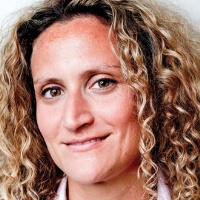
TV doctor: Dr Ellie Canon
Medicine is a bubble and in the outside world there isn’t always a set career path. You have to be flexible and humble. I think that the media suits people who are more comfortable talking to patients than other doctors.
Most media GPs have had some sort of serendipitous start, so it is hard to say ‘this is how to do it’. Launching a blog is a good start. There are now so many online media outlets that offering articles or comments on medicine will eventually bear fruit.
There’s as much or as little commitment as you want. I have a weekly slot on Sky News Sunrise and am the resident GP for the Mail on Sunday, MailOnline and Woman Magazine, but I have worked four GP sessions for the past seven years since having children and my media work has never affected that.
The best thing about it?
The variety. I love my clinic but it is very draining now with the ever-increasing workload. My media work is a welcome break and I feel I offer evidence-based health education to a wide audience.
The worst thing?
Criticism from GPs who have an inverted snobbery towards media GPs, assuming we have conflicts of interest.
Potential earnings?
Columns and TV appearances can earn you anything from £50 upwards each. However a lot of media work is unpaid.
Dr Ellie Canon is a GP in north London, with a varied media career.
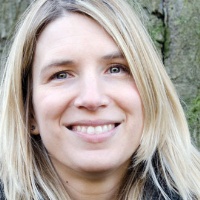
Life coach: Dr Sarah Coope
I started coaching doctors on all aspects of their life, from career decisions to work-home balance and stress management, after undertaking a coaching diploma and completing a neurolinguistic programming (NLP)practitioner course in 2007.
I am now a trainer and facilitator for a number of companies that deliver a range of communication skills workshops for doctors. The work is variable; for example, I recently ran an evening meeting for diabetes nurses on motivational interviewing and another on interview skills for GP registrars.
To get started, you need to find out what you really enjoy doing and then build up connections and experience in order to start attracting regular work. Often, one thing leads to another. If there is an area you are drawn to, then explore what courses would be valuable for you.
The best thing about it?
Doing something I really love. I can see when someone has gained something valuable from my coaching and it has made a difference to them.
The worst thing about it?
Spending considerable time on booking work and following things up is a minor irritation rather than a huge negative.
Potential earnings?
It varies from company to company. It is paid on a clinical lecturer pay scale, so similar to salaried GP pay.
Dr Sarah Coope is a locum GP in East Yorkshire, facilitator for Open Mind Education, appraiser, medical school tutor and a medical member of a tribunals service.
Focus on: Becoming a portfolio GP
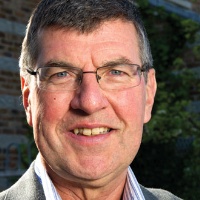
Expedition doctor: Dr Phil Yates
In the mid-2000s, I contacted an adventure travel company and offered my services. I was assessed by the company, learned a lot of high-altitude and tropical medicine and now work as an expedition doctor two or three times a year.
The work has involved climbing Kilimanjaro, trekking across the Sahara, traversing the Andes, walking the Great Wall of China and getting frost-nip at Everest Base Camp. I’ve dealt with conditions as varied as a pulmonary embolism, fractured radius and ulna, high-altitude pulmonary oedema and leech bites.
Roles outside general practice offer great opportunities to learn from others with different perspectives and it’s important to immerse yourself in some study of basic leadership together with management techniques and skills, to enhance your contribution, self-awareness and therefore personal effectiveness. Some of this can be achieved through study, but learning ‘on the job’ is hard to beat.
What’s the best thing about it
Since qualifying 35 years ago, there’s never been a dull day and my work on expeditions has only added variety to that. With the one life we’ve got, I’ve always believed that getting 100% out means putting 100% in.
The worst thing?
The feeling that with more time, one could do so much more.
Potential earnings?
My role as an expedition doctor is unpaid and since stopping my practice commitment, my income has dropped significantly. But this is more than compensated for by the improvement in lifestyle and having regained control of my life.
Dr Phil Yates is chair of GP provider organisation GP Care, council member of the South West clinical senate and member of the National Association for Primary Care and expedition doctor.
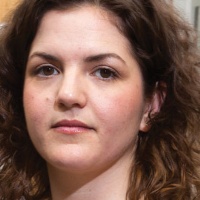
Medical politician: Dr Amy Small
Ultimately, if you are interested in becoming involved in work with the BMA, you will need to have very understanding GP colleagues. However, I think you can benefit your practice massively by being involved in GP politics. I was told when I joined the BMA that if I got involved with one committee it would lead to another – which is exactly what happened.
I am involved in the BMA – I sit on GPC, Scotland GPC, Scottish Council and Lothian LMC. I am also honorary secretary for the BMA’s Lothian Division.
I attend GPC and LMC meetings once a month, SGPC six times a year and Scottish Council three times a year, and I host division meetings about four times a year. The division work is perhaps the most demanding as I am the secretary, so all the organisation, minute-typing and so on is down to me.
The best thing about it?
The fabulous minds I have met and the feeling that I really can make a difference.
The worst thing?
That I sometimes cannot avoid having to rearrange things at work to accommodate attendance at meetings and conferences, and this has an impact on my partners and practice.
Potential earnings?
Earnings can vary. GPC and SGPC are funded by the General Practice Defence Fund and if you live in Scotland, you probably make the equivalent or slightly more than a day’s locum fee. If you live in England you make less than the average locum.
BMA Council attendance only covers expenses, but if I had to employ a locum to cover me at the practice then that expense would be covered. My work with the division is unpaid and LMC work is paid at locum rates.
Dr Amy Small is a GP partner in East Lothian and a medical politician.
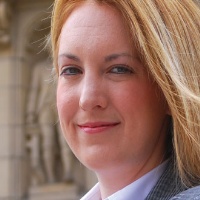
Academic GP: Dr Clare Taylor
I did academic GP training, which included a Master’s degree in public health, and I am currently doing a PhD looking at heart failure in primary care. I have also led the Masters module on heart failure and am a tutor and personal mentor for undergraduates. I have published 30 peer-reviewed papers, three book chapters and edited a textbook.
Academic GP training is a great way to get into the field and the National Institute for Health Research in-practice fellowship scheme offers funding to fully qualified GPs.
You need to really love the academic way of working and your research subject. It’s not all about drinking tea and reading journals. Competition for funding is fierce and getting published can be challenging. Ultimately getting your work noticed with the aim of changing practice is the long-term goal.
The best thing about it?
Feeling like you make a difference, both through individual interactions with patients and research that will impact patients you will never meet.
The worst thing?
Juggling two roles can be difficult as they are completely different jobs in many ways with different demands. But having the variety is also one of the best things.
Potential earnings?
Academic work has traditionally attracted less pay than clinical work. This has changed, but academics still earn considerably less than GP partners until they reach senior university positions.
Dr Clare Taylor is a GP in Birmingham and doctoral research fellow at the University of Birmingham.
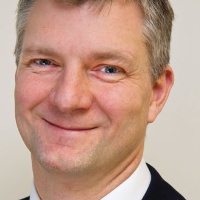
CCG officer: Dr Alistair Blair
I spend three to four sessions a week in the practice and six to seven working at the CCG, which tends to involve quite a bit of juggling. At times, there can be a bit of ‘mission creep’ so it is important to try to protect the time you spend on each role.
The chief clinical officer has overall responsibility for ensuring that the local population receives safe, high-quality healthcare that is matched to their needs and that the ‘affordability’ issue of a balanced budget is achieved. You have to know a lot about commissioning, contracting, finance, quality, pathways and politics. But there are other roles, be it managers or other clinicians, who do the deep-dive specialist work.
My advice to anyone who is considering work with a commissioning group would be to get to grips with being a GP first and make sure you’re happy in the practice you are in before branching out. Then ease yourself in to the CCG role. There are bits of pathway design that you can get involved with without taking the plunge.
I’d also highly recommend a clinical leadership course. They’re available at national and regional level and they will open your eyes to different techniques.
The best thing about it?
I enjoy seeing patients and the clinical side gives me an insight into what needs to change.
The worst thing?
The most difficult aspect is that you’re always trying to feed two different beasts and because you’re part-time for both, you end up trying harder to keep up to date than if you were doing just one.
Potential earnings?
The CCG pays about the same as being a GP. I do more sessions in a week than I used to, so I earn a bit more. But finances are definitely not the motivation.
Dr Alistair Blair is a GP partner in Morpeth, Northumberland and chief clinical officer of NHS Northumberland CCG.
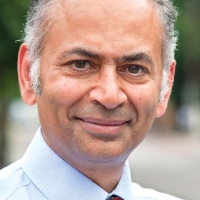
CQC inspector: Dr Ken Aswani
When the CQC was looking to recruit, I applied via its website and managed to get the job. It’s not a regular commitment at the moment but if the commission needs me for a week, I do that week. It’s beginning to build up now as inspections are rolled out across the country.
When I visit a practice with the inspection team, we generally start with a guided tour of the practice and interview key staff members, discussing a number of issues relating to quality, including implementing best practice and how staff work as a team and run an effective practice.
My specific role is to check equipment, and then review the results of the practice’s patient survey. I also give clinical advice to other members of the inspection team on the evidence they have gathered so far. I am also involved in giving feedback to the lead partner and practice manager at the end of the day.
The role is all about quality in general practice so it’s really worthwhile.
The best thing about it?
A portfolio gives you diversity. It’s refreshing doing different things – it keeps you sharp in all the things you do. And it’s very fulfilling from a professional point of view – you end up improving care for a wider group of patients. With the CQC work, my favourite part of the inspection is highlighting areas the practice excels at.
The worst thing?
As a CQC inspector, I am always aware of how nerve-wracking inspections can be, but being on the other side has made me less anxious about when my practice goes through one.
Potential earnings?
The remuneration is reasonable for the time spent. The most valuable part is the experience.
Dr Ken Aswani is a GP partner in Leytonstone, CQC inspector, GP locality network lead, GP trainer, national executive member for the NHS Alliance and deputy council representative for the RCGP’s North East London faculty.
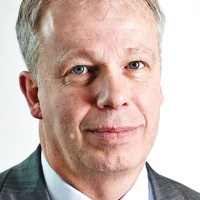
Business entrepreneur: Dr Paul Charlson
I began developing my portfolio when I first became a GP in 1989. After developing an interest in aesthetic medicine, I set up a cosmetic dermatology clinic in 2002. Dermatology qualifications came along as a result – and I feel these are almost essential for any doctor working in this field.
When I left my practice, I also did some work with provider company One Management Group and was invited onto the board. I use my knowledge of primary care commissioning and politics in a support and advice role, one day a week.
I probably work between 50-70 hours per week, but I don’t count them. I enjoy my work and I find it is far less restrictive than when I was in full-time general practice working fewer hours.
that a portfolio career is right for you, have a five- and 10-year career plan and acquire the necessary skills over time.
The best thing about it?
Working with great people, flexibility and the constant challenge.
The worst thing?
Taking on too much work. And dealing with people with clipboards and no common sense.
Potential earnings?
Financially I am certainly doing significantly better than as a GP principal – but I am working longer hours in a role with more financial and medico-legal risk.
Dr Paul Charlson is a sessional GP in East Yorkshire, a company director, a deanery tutor and vice-chair of Conservative Health.
Pulse July survey
Take our July 2025 survey to potentially win £1.000 worth of tokens











